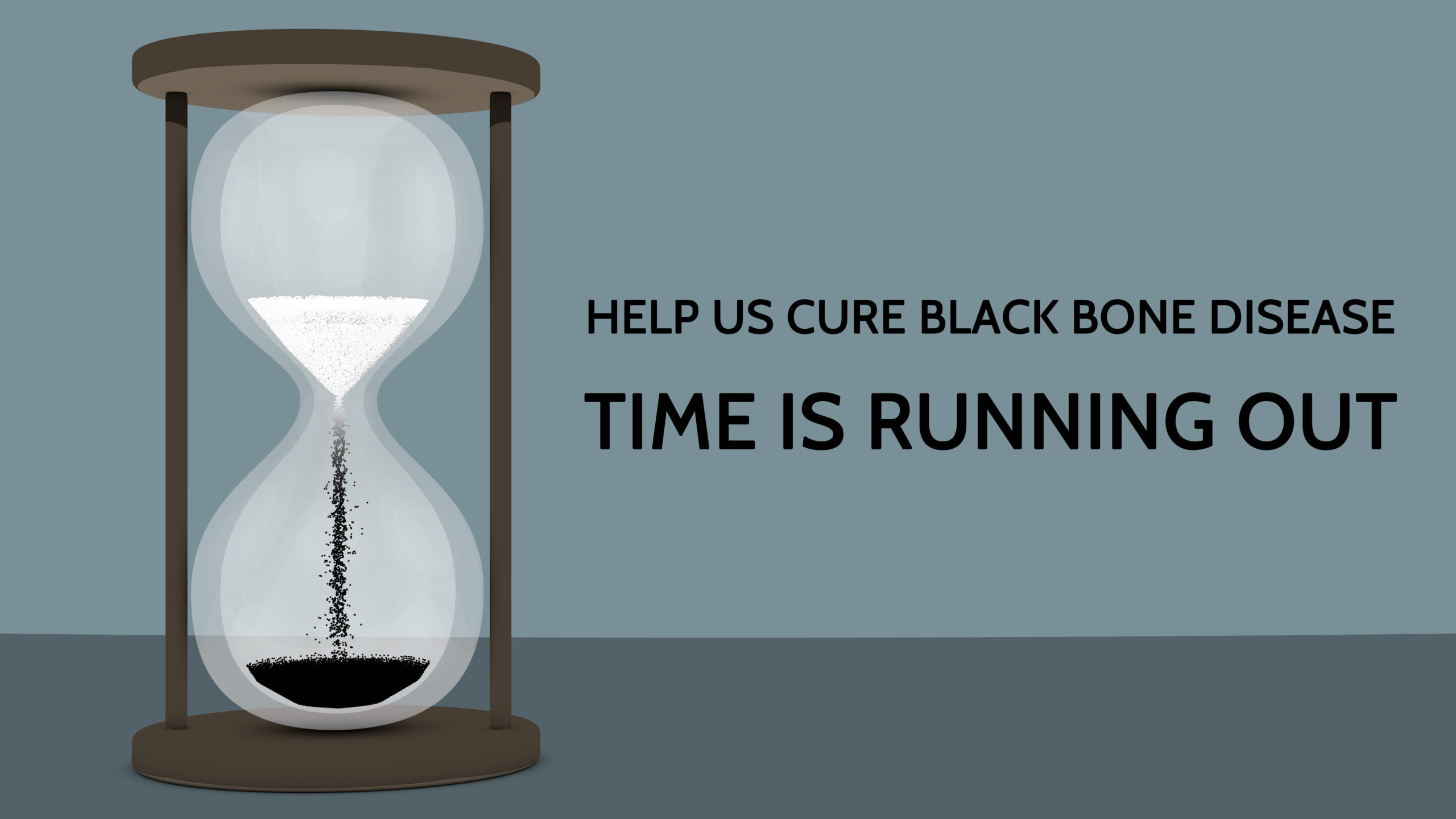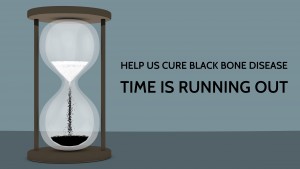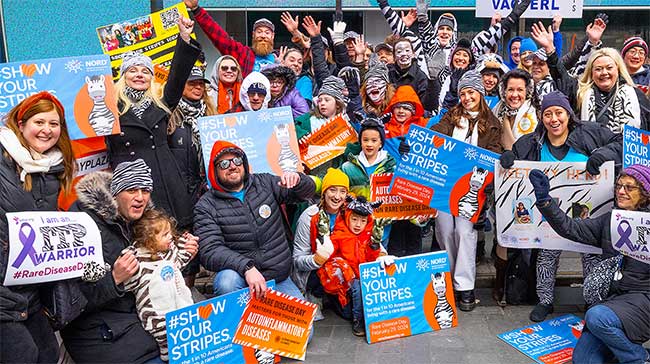Crowdfunding is a way of raising money to fund a specific project or fullfil a specific goal in a relatively short amount of time. It involves asking a large number of people for a small contribution to the project. The method is not just about getting money- it is about developing support from a crowd of people who believe in your cause.
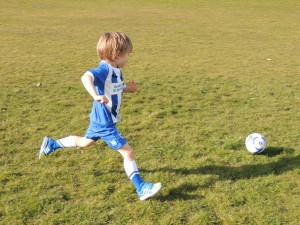
We believe this method of fundraising is especially important, as rare diseases are often unknown, and little understood by the wider public. More crucial than raising funds, is raising awareness. Crowdfunding offers you an opportunity to do both at once through the online crowdfunding platform you choose, social media, and the personal networks brought to you by your crowd.
What is Black Bone Disease?
Black Bone Disease was the first genetic disease ever identified over 100 years ago, and yet it still has no licenced treatment. It is incredibly rare, with fewer than 100 patients in the UK, and around 1000 cases diagnosed worldwide.
Thanks to the genetic defect, an enzyme usually present in the body cannot be produced. This causes the build-up of a harmful acid in the body, which attacks bones and other tissue, turning them black and brittle. This results in severe joint damage and a risk of heart disease.
Our research
The AKU Society is a charity working to support patients with the disease. As a patient group we work closely with patients to provide them with support, and information. Our goal is to improve the level of care experienced by patients, and to drive research to find an effective treatment.
In 2013 we launched our first clinical trial, raising over $100,000 to support the launch of an international clinical trial. This trial is now underway, and is testing a promising drug called nitisinone. If given at the correct age, this drug has the potential to prevent all of the debilitating effects of Black Bone Disease.
However, we still have something we need to find out. What is the best age to give this drug? Given too early in life and the drug could potentially cause side effects harmful in growing children. Given too late and the debilitating damage caused by Black Bone Disease will already have set in. To find the optimum age to treat patients, we need to undertake some new research.
Our researchers will study the progression of Black Bone Disease by comparing patients from a range of different age groups. They will test how patients walk using gait analysis, and will also collect blood, urine and cartilage samples.
To support the research, we are launching a crowdfunding campaign to raise money and awareness.
Preventing Disability
Black Bone Disease affects patients throughout their whole lives. From a very early age urine is a dark colour, staining nappies. Other symptoms can include dark earwax and sweat. These are harmless symptoms, and children seem perfectly healthy. However, symptoms get progressively worse as patients reach their 30s. They soon develop crippling back and joint pain. Older patients need serious joint operations, and can become severely disabled.
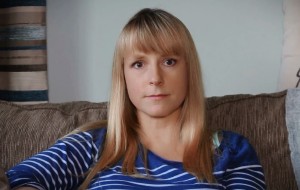
Jess is the parent of a little boy called Daniel. He has Black Bone Disease. She first noticed something was wrong when she saw dark red staining in her son’s potty. For over a year they made visits to several doctors, and after some research online, she eventually got Daniel tested for Black Bone Disease. She said “When Daniel was first diagnosed, we were absolutely devastated. I was terrified of what the future could hold.
“He’s a very happy and healthy four year old, but invisible damage may have already started, and that’s why it’s so important to find the right age to start taking this drug.”
Watch their full story in this video
Rosie was also diagnosed with Black Bone Disease as a baby after her parents noticed a dark staining in her nappies. She is now 21, and is studying medicine at university. She has noticed symptoms such as dark staining from her sweat, but is otherwise healthy. Having met older patients she said, “It would be incredibly important for me, and other patients like me, to know when the best time is to start nitisinone, to prevent us getting the more severe aspects of the disease, including the arthritis.”
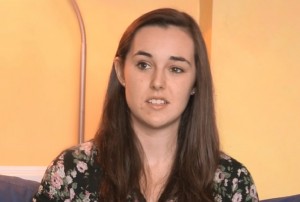
Watch her full story in this video
Ann is 55 years old, and was only diagnosed with Black Bone Disease when she was 49. Overall she has had 6 joint replacements and open heart surgery as a result of AKU. She has severe joint pain, and finds it difficult to get up and down the stairs. She uses a stick to walk, and her disability resulted in her having to give up work.
Ann is passionate that other patients should not suffer as she has. She said, “It really is crucial that we find out what age to start nitisinone for patients so they do not develop any of these debilitating symptoms.”
Watch her full story in this video
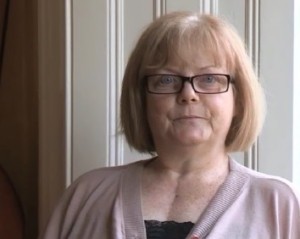
The campaign
We already have the medical funding to cover the research costs of this new study, but we have no funding for patient and carer travel and support. Because the disease is so rare, patients are scattered all across Europe. We need to raise $30,000 (£20,000) to support patients to come to our research centre in Liverpool. Many of our patients are disabled, and need family members, or carers to accompany them in order to travel. We want to make it possible for anyone with Black Bone Disease to take part.
This research is so important for younger patients like Daniel, as it gives them the chance to never suffer any of the symptoms of this horrible disease. Please help us cure Black Bone Disease now: time is running out!
You can view the campaign page here
Can crowdfunding really cure a disease?
For us, crowdfunding really has been a fantastic help in funding this crucial research, and raising awareness of the disease. We are now on track to find a viable treatment thanks to the support of hundreds of people.
However, crowdfunding will never be the full solution. There is still one huge problem- that of early diagnosis. If patients are not diagnosed early in life, this new research really is pointless. In order to give the drug at the correct age, we need to identify patients early in life, and they need to be given the correct information about treatment. This is a huge battle to fight.
This is why we have partnered with the Royal College of General Practitioners (RCGP) to develop an accredited educational module for GPs. The module is online, and although it is aimed at healthcare professionals, it is open access, and free for anyone to use. We hope this module will begin to educate those in the healthcare profession, and improve rates of early diagnosis.
By Sorsha Roberts, Online Communications Officer for the AKU Society



